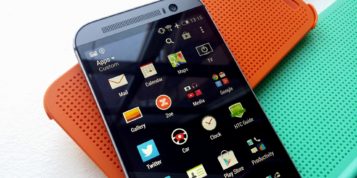The future for the email marketing industry certainly looks positive. As the industry matures, concerns about return on investment are falling dramatically. eConsultancy’s sixth annual Email Marketing Census, 2012 has found that the vast majority of companies (70%) rate email as ‘excellent’ or ‘good’ for return on investment. No other channel, except for SEO, is rated so highly. However, recent research from the Direct Marketing Association (DMA) has found that 48% of email marketers regard conversion rates as their biggest concern. This is followed by click-rates (43%) and deliverability (39%).
Perhaps their fears are not entirely unfounded; in recent years we have seen an explosion in email marketing that has made it synonymous with spam. When the ping of a new email arriving in our inbox fails to attract our attention or interest, and when users automatically reach to click the ‘delete’ button, savvy marketers need to think of new ways to reach and engage their audience.
One of the most effective ways to engage consumers is via SMS. Not only is the text message well suited for the task of marketing but it is quintessential mobile and available to over 5 billion users anywhere they go and on nearly every conceivable handset. In fact, SMS is the most widely used data application on the planet and its ubiquity as a method of communication cannot be understated.
Reaching almost all mobile users with immediacy, SMS is one of the most trusted mediums of communication. For a way to contact customers with relevant offers and remain assured that they will not only be delivered but also read, SMS is unrivalled. In many developing nations where mobile communication takes precedence over the web, the text message is an exceptionally effective way to reach people with offers, announcements and updates. Global brands are already aware that developing markets will form a large share of their future customer base and SMS is proving to be a seamless universal tool to connect them to that base in a way that feels personal and targeted. The click rates are also higher – marketing software firm Signal recently reported that average click-through rates across text messaging campaigns were 6.16%, which compares very favourably to e-mail at just 2.8%.
The instant nature of SMS is an important factor. Consider how quickly you read a text message, compared to an email. 95% of text messages are read within 4-15 minutes (Mobilestorm, 2009). It is this immediacy, as well as the reach, reliability and the ’to the point’ nature of SMS which makes it a prime target for marketers who voice concerns about e-mail. As a two-way interaction marketing tool, SMS helps marketers get instant feedback for their campaigns. It can also provide direct promotions/coupons to a phone which can be redeemed almost straight away. Indeed this year Juniper announced that mobile couponing is poised to reach redemption rates of 8% by 2016. This finding came hot off the heels of another recent Juniper study, which found that mobile coupon redemption rates are expected to exceed $43 billion by 2016. In addition, statistics from the Mobile Data Association show that response rates for mobile are four times greater than other direct marketing methods.
A recent survey by SocialMediadd found that 65% of mobile phone users like receiving promotional offers on their phone and 75% of smartphone users prefer receiving offers via SMS. Additionally, the fact that users can usually control whether they receive messages through an opt-in process means that the messages are far less likely to be ignored and are contextual and targeted. Nobody likes the idea of unsolicited messages and since consumers can both opt in and out of SMS marketing, they can make sure that they only receive the messages they have asked to receive.
Measurement has always been a factor of great importance for any marketer and another key advantage of SMS is the level of transparency it offers into results tracking. Enterprises now have the ability to see if a message has been delivered, read, redeemed or deleted. Unlike other forms of direct marketing, SMS offers businesses the opportunity to evaluate the effectiveness of their communications campaigns, allowing for mid-execution modification.
Although marketing goals will always affect the best method of reaching out to consumers, for ubiquity and convenience, SMS is unbeatable. By integrating SMS, marketers can take marketing campaigns to the next level. The vast reach of SMS, spanning all networks and devices, makes text messaging the obvious choice for brands looking to leverage mobile to enhance their consumer reach and their bottom line.






